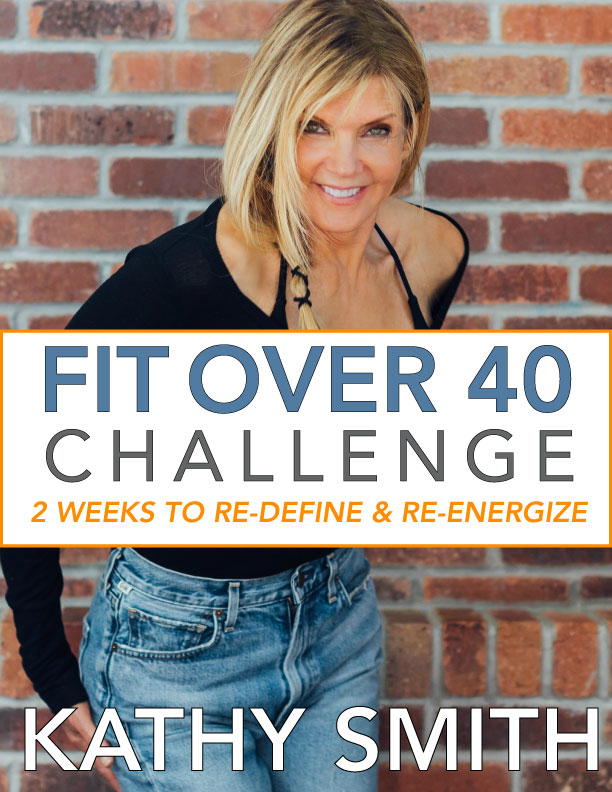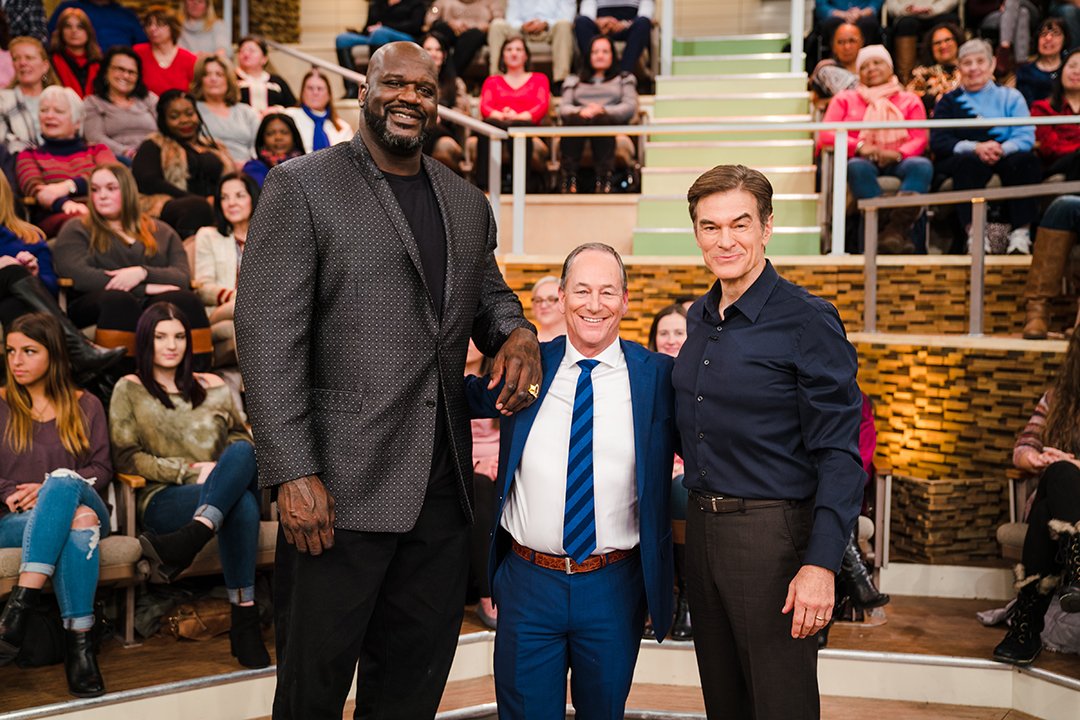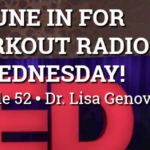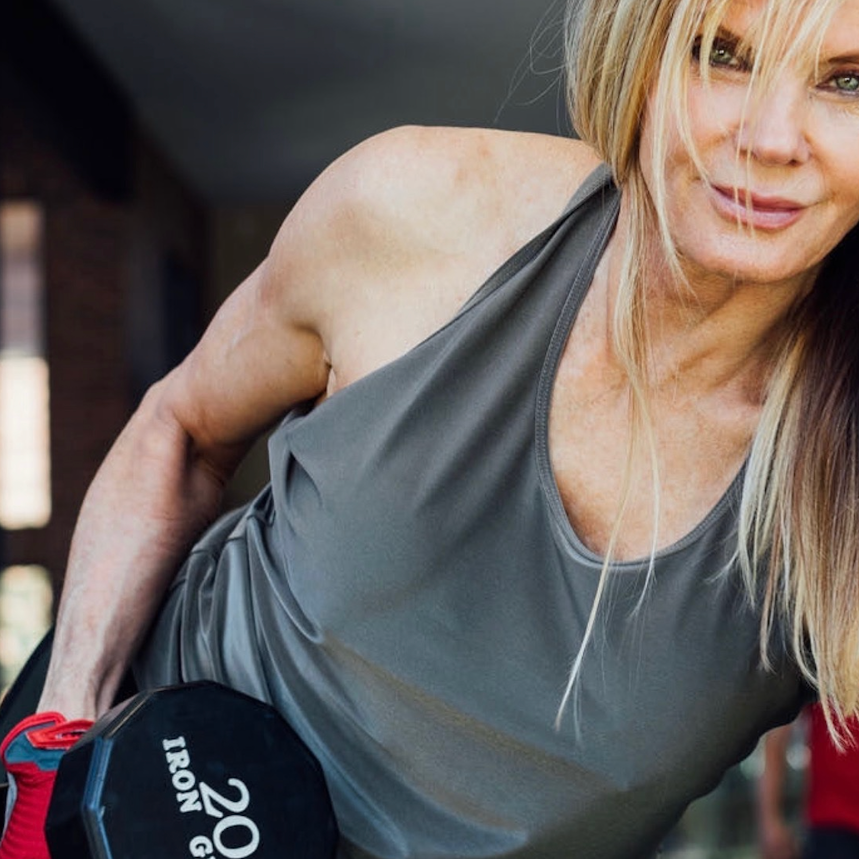
Episode 67 | Dr. Jonathan Greenburg | Simple Ways to Stop Snoring …Listen With Your Partner!

To Listen, Just Click Play!
✅ How snoring impacts you in ways you don’t even think about…including 3x more likely to have a heart attack, 4x more likely to have a stroke, and 7x more likely to get in a car accident
✅ What to do when you suffer from “second hand snoring,” meaning your partner’s snoring is destroying your sleep
✅ Natural solutions to improve throat and jaw muscle tone to help eliminate snoring
✅ How to know when snoring a sign of something more serious
Over 90 million Americans suffer from a condition that leads to fatigue and brain fog, and may lead to high blood pressure, heart disease, stroke, and type 2 diabetes. And very likely, it puts added strain on relationships. Know anybody who snores? Well, you’re not alone — Snoring affects one out of two adults in America, either directly or through what’s called secondary snoring, which means being affected by someone who snores.
Over time, snoring can be hazardous not only to your health, but to your partner’s as well. I’m so excited for today’s guest, because I’ve been personally impacted by a partner who snores.
My guest today is Dr. Jonathan Greenburg, celebrity dentist and snore expert who, for the past ten years, has focused his practice exclusively on the treatment of snoring and sleep apnea. He’s the inventor of a simple and effective way to eliminate sleepless nights and the health issues that may result from chronic snoring. Even Shaquille O’Neal, one of the nation’s most publicly notorious snorers was cured by Dr. Jonathan Greenberg, and thousands of others have credited him for saving their marriages.
Snoring is more serious than many people realize, so don’t sleep on this!
✅ To find out if you have sleep apnea, contact a specialist in your area.
✅ To catch some happy Z’s, snorers can try the Zyppah anti snoring device for themselves by going to zyppah.com
✅ You can keep in touch with Dr. Greenburg and the Zyppah team on …Facebook, Instagram, and Twitter
Subscribe To The Art of Living
Like What You Heard?
If you like the show, I’d appreciate if you could please take a moment to leave an honest review and rating for the show on iTunes. They’re super helpful for ranking the show so more people can find it. And, I love hearing what you have to say!
And, remember to subscribe on iTunes to receive updates every Wednesday when a new episode is live!
Follow Along With The Transcript
Kathy Smith: Dr. Greenburg, welcome to the show.
Jonathan Greenburg: Thanks, Kathy. It’s great to be here, great to share all this fun and really important stuff.
Kathy Smith: Let’s just start with a little background. You practiced dentistry for 30 years and then you switched over to really working with sleep disorders, specifically snoring and sleep apnea. Talk a little bit about what inspired you to switch careers and go in this direction.
Jonathan Greenburg: It really was kind of serendipitous. Somebody about 20 years ago came into our office and said the next big thing is going to be the treatment of snoring and sleep apnea for dentists. We really knew nothing about it at the time. And they said, it’s with mouthpieces.
We looked at them and said, “It sounds really interesting. We’ll look at it a little bit more.”
The more we investigated it, the more we got involved. Truly, it’s become so exciting because of the significant impact it has on people’s lives. We joke about snoring. We joke about when someone’s not getting good rest and they pull an all-nighter or we try to be heroic and say, “I can get by on two hours’ night of sleep,” and they’re really doing their body a lot of harm.
The more we got into it, the more excited we got. Then about 10 years ago, I made the complete transition where we stopped doing dentistry any longer and we created what we call– our centers now are called Snore Experts, where we’ve got five treatment centers in Los Angeles where all we do is treat snoring and sleep apnea.
Kathy Smith: You’re right. It’s interesting how with– I don’t know if you remember the Three Stooges. They were the ones that I remember from a very young age put this spin on snoring that was so funny when they were in bed. And they all had their different snore patterns.
The more that I’ve read about it and understand it and have been with somebody who snores, it’s a huge problem. What causes snoring to begin with. What’s the issue?
Jonathan Greenburg: I love when you ask a question like that, because it’s really simple. What happens is it’s about the tongue. It’s about having a big tongue in a small mouth. If you think about it, if you’ve got a size 9 foot, you’re going to put it in a size 6 shoe. That doesn’t work out too well, does it?
Kathy Smith: No. That would be a problem.
Jonathan Greenburg: The front of the foot goes in and then the rest of the back of the foot is hanging out. Well, if you have a size 9 tongue in a size 6 mouth, then your teeth are in the front and the sides, the tongue has no place to go, and so it goes backwards.
You mentioned Shaquille. Shaquille O’Neal probably has a 45-size tongue in a size 40 mouth. It’s all relative. So what happens is snoring is a partial blockage of the airway. Sleep apnea is a complete blockage of the airway.
So as we know, when we lie on our back, a lot of people say, “That’s when I snore. Only when I’m on my back.” Then we get elbowed to roll over onto our side. That’s because gravity is pushing that tongue backwards.
The other comment you often hear is somebody says, “I only snore when I have alcohol.” Well, if you think about it, alcohol is a muscle relaxant. Your tongue is a muscle. Therefore, if you have alcohol before bed or if you have a really big workout and you’re just exhausted, your muscles are all tired, they’re going to fall back. So your snoring and sleep apnea will be worse then.
Then of course, there is the other issue where people say, “I never snored when I was younger – 20 or 30 – but now I’m getting into my 40s, 50s, 60s, I’m snoring a lot. What’s going on?”
Again, what happens to our muscle tone as we get older?
Kathy Smith: It starts to diminish. It starts to atrophy and we lose tone in all our muscles. It’s interesting that you bring that up, because obviously, it’s my field and I’m always trying to remind people that there’s muscles all throughout your body, not just your abs and your biceps – but everything else. So let’s talk about that. Are there ways that you can tone those muscles to help prevent snoring?
Jonathan Greenburg: Yes. As I said, as we get older, we lose that muscle tone and that then becomes a problem. So any kind of exercises that we were to do with our tongue will help. Th didgeridoo out of Australia has been known to help. It’s a positioning of the tongue as you play that instrument. One of the exercises I always tell our patients to do is to take the tip of your tongue and place it on the back of your very two front, central teeth. You put the tip of the tongue there, right at the back, and when you swallow, I want you to keep your tongue positioned, touching the back of those two front teeth.
We get into this habit where we let the tongue slide backwards and it gets lazy and it goes in the back of the mouth. We want to practice bringing it forward again.
Any of these exercises that you can use will help. Unfortunately, when we go to sleep at night, we can’t control the tongue and very often, we don’t get the results that we’re looking for. As you know, because you’re the workout guru, so with exercise that you talk about so much, people’s problem is exercising. So I find that most of my patients, when I tell them to exercise their tongue, they don’t do it.
Talking does do some exercise so when people complain that someone’s talking too much, there is some exercise going on there. So doing things like that certainly can help.
Kathy Smith: Before you move on from that, I know when I was in a speech class at UCLA to help our speeches on stage, on radio, on television, they gave us exercises at that point, which to your point, I would practice for a while, then you fall out and you’re not practicing. But I remember we would take vowels like a, e, i, o, u and kind of exaggerate them. Another one we would do is put the tongue on the back of the teeth and on the roof of the mouth and slide that tongue back and sort of stroke the top of your mouth to kind of strengthen the tongue.
To your point, it does a little but how much good, I’m not sure. That’s why it’s interesting that you’ve developed an appliance to help with the problem, which I want to discuss because I’m trying to visualize it, and I know we’re going to send our listeners online to your site. But can you describe the device you developed and how did you come up with actually the design of it?
Jonathan Greenburg: Thank you. What I designed was this mouthpiece to keep the tongue from falling back. There are a lot of mouthpieces that are out there. If you go onto the Internet or Amazon and you look under “snoring” and “snoring mouthpieces”, you will find many of them. There are probably more than 100 mouthpieces out there.
They all function by bringing your lower jaw forward. So your tongue is attached to your lower jaw. If you bring the lower jaw forward, it does bring the tongue a little bit more forward creating a little bit more space.
That works, but it didn’t work that well, and that was my concern. I was fortunate. Undergraduate, my degree was in biomedical engineering. I went to Syracuse, where you get just a few days of sunshine a year but lots of snow. It’s actually a great place to go to school and study because there’s not a lot of distractions.
I kind of went back to my roots, and I said, “If we’re going to really keep that tongue from falling back and have greater success, we need to do something different.” So what I created was an elastic that goes on top of the tongue. It’s a mouthpiece, and the elastic is attached to the back of the mouthpiece to keep that tongue from going backwards. It’s kind of what we talked about. It’s a seatbelt for the tongue.
So if the tongue behaves and stays forward, you won’t even know it’s there. But if it tries to go back, it’s going to hold it in place, and that’s what differentiates our mouthpiece over any of the others. Everybody’s looking for happy sleep, so we named the company Zyppah, which was Happy Z spelled backwards.
Kathy Smith: I was wondering what that meant. That’s very, very clever.
Jonathan Greenburg: Because we’ve been so successful, there are lots of companies that talk about Zyppah and products like Zyppah. But there’s only one. We’ve got the patents that has this tongue elastic, which is kind of like the seat belt for the tongue to keep it from going back. We’ve had fantastic success with it.
Kathy Smith: So you’re not moving the jaw forward then with your device?
Jonathan Greenburg: We are moving the jaw forward just a very small amount. One of the concerns with bringing the jaw too far forward every day is you can start to change the bite a little bit. And you can also cause what’s known as TMJ, which is muscle spasm or joint issues in the jaw. Those can be a problem. I wanted to really minimize that. The real heavy lifting, the load, is with that tongue strap to keep the snoring from happening.
Kathy Smith: So we have snoring and then we have sleep apnea. Does snoring lead to sleep apnea or is it a completely different issue?
Jonathan Greenburg: Kathy, this is a very important concept. I would love your listeners to really understand this in that snoring, as I said before, is a partial blockage of the airway. Sleep apnea is a complete blockage. There’s an estimated huge amount – 90 million people in the U.S. – who snore. Based on my clinical experience, I think it’s actually over 100 [million] at this point. Of those, 40 million have sleep apnea.
The only way to know if you have sleep apnea or not is if you get something called a sleep study. You can do home sleep studies now with some very cool equipment technologies. It’s fantastic to find out if you have it. But that’s about 40% of the people who snore have sleep apnea.
You’ll start out not snoring typically, then you go to snoring. As you lose more muscle tone, it goes to loud snoring and then very loud snoring. Then it is going to become sleep apnea – mild first, then moderate, and then severe. If we live long enough, we’ll all eventually have sleep apnea because of the loss of the muscle tone.
Kathy Smith: When it comes to sleep apnea, obviously it’s a more dangerous condition. I understand that there are a couple of types of sleep apnea, but more importantly, let’s talk about some of these conditions that may develop because of sleep apnea. For instance, how does it impact the heart and the brain?
Jonathan Greenburg: When your tongue is blocking – what we call obstructive sleep apnea – which is what almost everybody has. It’s an obstruction, it’s a blockage which tends to be the tongue. Now, when you’re not getting any air in or out of your mouth, what we call the oxygen saturation level in your blood drops. That is the magic thing for people to think about.
It’s not so much how many times you stop breathing, which a lot of the medical and dental community talk about. It’s more important what your blood oxygen saturation is.
For people to kind of think about this, think about your blood as nothing more than a freeway system. It’s the highway where the body gets delivered – the FedEx, the stuff from Amazon, stuff from everywhere – it’s a kind of freeway, but it also picks up the trash, the waste products and such. And it carries your oxygen.
Say this is a truck and it’s less filled with oxygen passengers or a bus with less oxygen passengers on it, you’ll need more busses to get up to the brain which is so sensitive. So one of the things that the World Congress on Alzheimer’s a year ago in London talked about – the biggest take away was the correlation between Alzheimer’s and untreated sleep apnea. That was over not a year or two but it was many years of not getting the amount of oxygen to the brain. It’s also causing high blood pressure. It’s causing heart disease. Also, the big one for a lot of your listeners is weight gain.
A lot of that comes in if you’re not getting what we call the REM sleep, which is that deep sleep where you do most of your dreaming. That’s also very important for the whole immune system. The way that all works is your body metabolism, without your proper REM sleep, is going to slow down, and it’s going to be easier to gain weight. It’s also going to be harder to lose weight.
Then you’ve got enzymes like leptin. The proper amount of leptin is like your body’s appetite suppressant. It tells you to stop eating. If your leptin levels are low, you’re always going to crave carbohydrates, which is going to make keeping your weight off that much more difficult.
Kathy Smith: Yeah, I know. I’ve heard you talk about it, and we’ve talked about it on the show. Without that recalibrating of those hormones during the evening, what happens is you get up the next day, and really with those carbohydrates, you’re sitting there and it’s not even about self-control. It’s about your body is craving these carbohydrates. Therefore, you can’t just stop. I think you mentioned this on one of your shows, which I love, which is you can’t stop at half the French fries or a few French fries. You have to finish the whole bag.
That is where I really try to help women understand this sleep issue. Whether it’s about snoring, like we’re talking about today, or just simple sleep hygiene of what can you do before you go to bed to make sure you get a good night’s sleep. Because it’s going to impact your entire day the next day with brain fog or no brain fog, with this idea of craving foods or not craving foods.
I know with sleep hygiene, we always talk about things like cool down the room, try to reduce time in front of your cell phone or your computers before you go to bed. Try to have maybe a little ritual of taking a bath or anything. Is there any pre-sleep prep that you can talk to a person about to perhaps minimize the chances that they’re going to snore? Or are they not connected?
Jonathan Greenburg: For snoring, that’s not going to be a connection. You need really good, quality sleep. There are lots of things to do for good, quality sleep. If you struggle sleeping, my recommendation is you keep your bedroom only for sleeping. So you don’t watch TV. Get rid of the TV in the bedroom. Don’t be working on your smartphone or your laptop or reading a book in bed.
When you’re going to bed, you just want to go to sleep. So my recommendations are absolutely make that bedroom just for sleeping and nothing else.
Kathy Smith: Hold on Dr. Greenburg. Nothing else?
Jonathan Greenburg: You can go there. But quite honestly, I think if we’re going to talk about sex, then I think it’s more entertaining – you can go other places and have fun. But you certainly can.
But again, have fun with it. I think if you try to be true rigid in anything, it makes it difficult to do long-term. You want to do it fun.
But one of the messages that I think is important for a lot of women and spouses is if your spouse – bed partner – is a really bad snorer, then either they leave the room or you leave the room. Because what I call second-hand snoring, just like second-hand smoke, your REM sleep is being interrupted just like theirs.
Now, a few years ago, 60 Minutes did a program on snoring and sleep apnea. They took a young gentleman in his 20s. Every night, they had him sleep in a setting kind of like a hotel room, and they pressed a buzzer when he got into his REM sleep. Leslie Stahl said to the doctor, “He’s not even waking up.”
The doctor said, “Yeah. But look. He’s out of his REM sleep,” every time they pressed the red buzzer.
Within five days of not getting any REM sleep, this gentleman, who was very healthy in his 20s, became type 2 diabetic. How’s that for an aha?
Kathy Smith: It happened really that quickly?
Jonathan Greenburg: Five days of no REM sleep. Also, his body metabolism cut in half. He was craving the carbs. They then gave him his REM sleep back the next night and everything normalized and went back to normal.
Ohio State University, I think, and somebody else, did the same exact study, got identical results. So if you are anybody and your bed partner is snoring, that’s interrupting your REM sleep, and you’re going to have the same effects on your body in terms of waking and everything else, brain fog the next day and being tired by staying there. The best thing, really, if you care about them is make them go get their snoring or sleep apnea fixed.
Kathy Smith: That’s a real light bulb moment for a lot of people. Because this is a topic that so many people talk about, so many women in my situation talk about – being with partners that snore, being embarrassed to talk about it, being self-conscious about making the other person feel bad. Whatever the issue might be, it’s perhaps not discussed.
Then what happens over a period of time is that perhaps you start sleeping in separate bedrooms or somebody sleeps on the couch or you start to find ways to remedy the situation. But that sometimes can then cause lack of intimacy as well as some hurt feelings, which again, we talk about this in women’s groups about, “What can we do about this? I can’t get any sleep. I’m feeling crazy the next day.”
So this idea that by helping your partner find a solution to their sleep, you’re also helping yourself and you’re helping your own – not just getting a good night’s sleep but preventing all these other health issues. It’s a really good point.
Jonathan Greenburg: Yeah. That’s so critical. If people get one take away thing from this, it’s stop laughing, stop joking, stop ignoring about snoring. Snoring has such a huge health impact and that’s why I created the mouthpiece. And that’s why we brought on Shaquille O’Neal to be our global brand sponsor to create this awareness everywhere – that this is important. It’s no longer a joke. It really is impacting your life. As you said, the intimacy, the relationship. Just speak to your bed partner. Get serious with them.
If they were taking drugs or had an alcohol problem, you’d have the same conversation. It’s time to have the same conversation with snoring. It’s time to get it fixed. There are some great remedies. You don’t need a CPAP. For sleep apnea, the mouthpiece that you can get online is not right for sleep apnea. You need to go see a dentist who can make an appliance that can replace your CPAP machine.
We do that every day in our centers. But if it’s just snoring, absolutely get them the mouthpiece. We offer a full moneyback guarantee if there are any issues. Because nothing’s going to work for everybody, but there’s nothing better as a mouthpiece than we have with the Zyppah mouthpiece.
Also, for your listeners, we’re going to give $20 off on our mouthpiece, which is the biggest discount we ever give. The promo code, when they go to the site, which is Zyppah.com, the promo code is Kathy. They just need to spell your name right with a y and such. They’ll get $20 off for doing that. But they have to do it by tomorrow night, because we do these things very infrequently. We just really appreciate being on your show.
Kathy Smith: I appreciate it. The y is not the biggest misspelled part of that. It’s the K instead of a C. But thank you for that. I really appreciate that.
Just in wrapping up then, I wanted to just mention that I was very impressed by the video Shaquille O’Neal did with his wife. Because to your point, he comes on and talks about his issue and how you cured him. But his wife was also so grateful, so authentic, so powerful on how she talked about how it changed her relationship with him in the bedroom.
I really thought that was quite a remarkable story. As we leave here, I just wanted to thank you but really to sum up what you just said and just re-emphasize is that snoring and sleep apnea can be really hazardous to your health. So don’t take it lightly. Get out there.
We’re going to have liner notes. We’re going to have all the information that you just heard. It will be in the liner notes. We will also talk about it on Facebook and on other social media about the appliance and where you can get it and about the discount.
With that, I thank you. It was a pleasure talking to you. Now, I need to get my partner in to see you. We’ll have to make that appointment.
Jonathan Greenburg: Absolutely. Thank you so much, Kathy. This has been great.
Kathy Smith: Okay. Thanks so much, Dr. Greenburg. Bye-bye.
Jonathan Greenburg: Bye.










